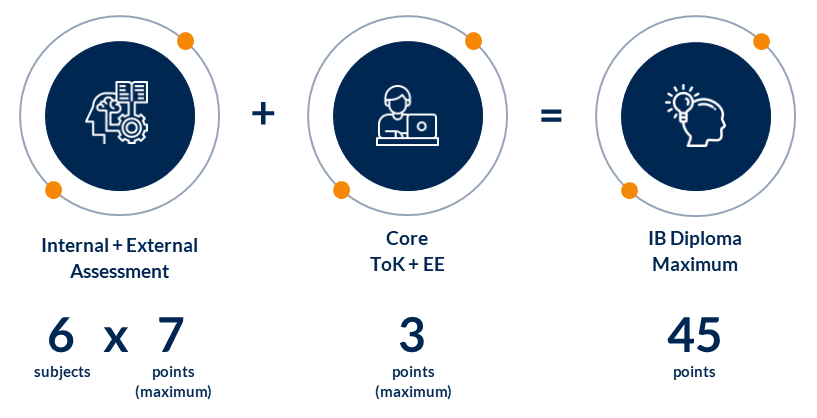IBDP SUBJECTS
The IBDP comprises six subject groups and additional requirements known as the core elements; the latter distinguish the IBDP from all other educational programmes. Within each of the six subject groups, SIS offers several options to cater for students’ interests and needs.
Subject Groups
For each subject group, the courses and/or combination of courses offered are listed below. The school determines the courses offered and combinations allowed for any given cohort. Students can consult the IBDP coordinator and guidance teachers on course selection.
* Subject to minimum class size
- English Language & Literature
- French ab initio
- Mandarin B
- Business Management
- Economics
- Environmental Systems & Societies
- History*
- Psychology*
- Biology
- Chemistry
- Physics
- Environmental Systems & Societies
- Math: Analysis & Approaches
- Math: Applications & Interpretations*
- Visual Arts* (No subjects are currently offered from Group 6. Students are required to choose one subject from either Group 3 or 4).
Core Elements

Theory of Knowledge (TOK)
TOK is central to the philosophy of the IB Diploma Programme. It offers students the opportunity to reflect critically on diverse ways of knowing and to consider the role of knowledge in their culture and the culture of others. TOK encourages critical thinking, stimulates discussion, and is designed to immerse students into the study of oneself and the world around us.

Extended Essay (EE)
Universities attach great importance to the Extended Essay because it provides practical preparation for undergraduate research and academic writing that are required in higher education. Each student selects and investigates a topic of special interest and then writes a 4000 words essay. Emphasis is placed on the research process, personal engagement in the exploration of the topic, and the development and communication of ideas.

Creativity, Activity, Service (CAS)
CAS is designed to complement the academic rigours of the IBDP, and universities attach great importance to students’ participation in CAS. In CAS, students are required to demonstrate continuous engagement in extra-curricular activities with even balance between creative pursuits, athletics, and community service.
Assessments & Evaluations
The IB assesses student work as direct evidence of achievement against the stated goals of the DP courses. In addition to academic skills, DP assessment encourages an international outlook and intercultural skills, wherever appropriate. The IBDP also employs both internal and external assessments.
Teachers will assess every student’s work which can include projects, independent research, analysis, writing, and more. Teachers will offer guidance, as appropriate, but internal assessments are still marked externally by the IB. Teacher assessments happen in most courses, and they include:
- Oral work in languages
- Laboratory work in the sciences
- Investigations in mathematics
- Artistic performances (if relevant to course)
- Fieldwork (if relevant to course)
Examinations form the basis of assessment for most courses because of their high levels of objectivity and reliability. They include:
- Essays
- Structured problems
- Data-response questions
- Text-response questions
- Case-study questions
- Multiple-choice questions
IBDP students at SIS will take their final examinations at the end of Year 2 during the October/November examinations. As required by IB, SIS students will take the same exam papers as the rest of the world which will be marked by the same external marking team worldwide.
Grading System

Beyond IBDP
The IBDP enables students to develop strong intellectual and interpersonal skills. Their focus on and engagement with the DP go beyond preparing for exams. Throughout the DP, they develop skills that universities and employers want such as abilities for research and reflection, communication and collaboration, persuasion and presentation, discussion and debate, and much more. When the time comes for them to consider their career pathways and making university choices, SIS’s IBDP coordinator and guidance teachers are available to provide the guidance and support they need. Often, SIS’s IBDP students are quite certain about what they want to pursue in higher studies or career/profession as they have honed the skills for independent research, reflection, analysis, and decision making.
